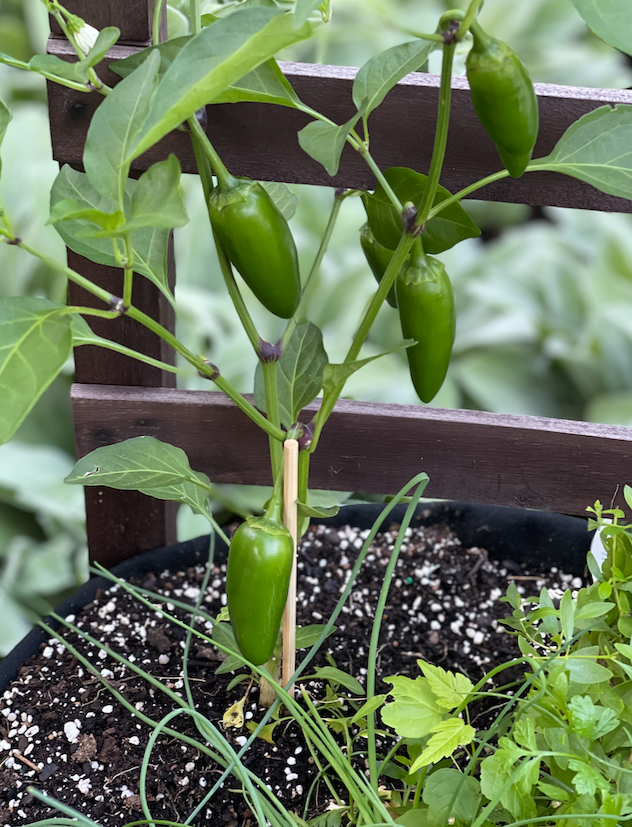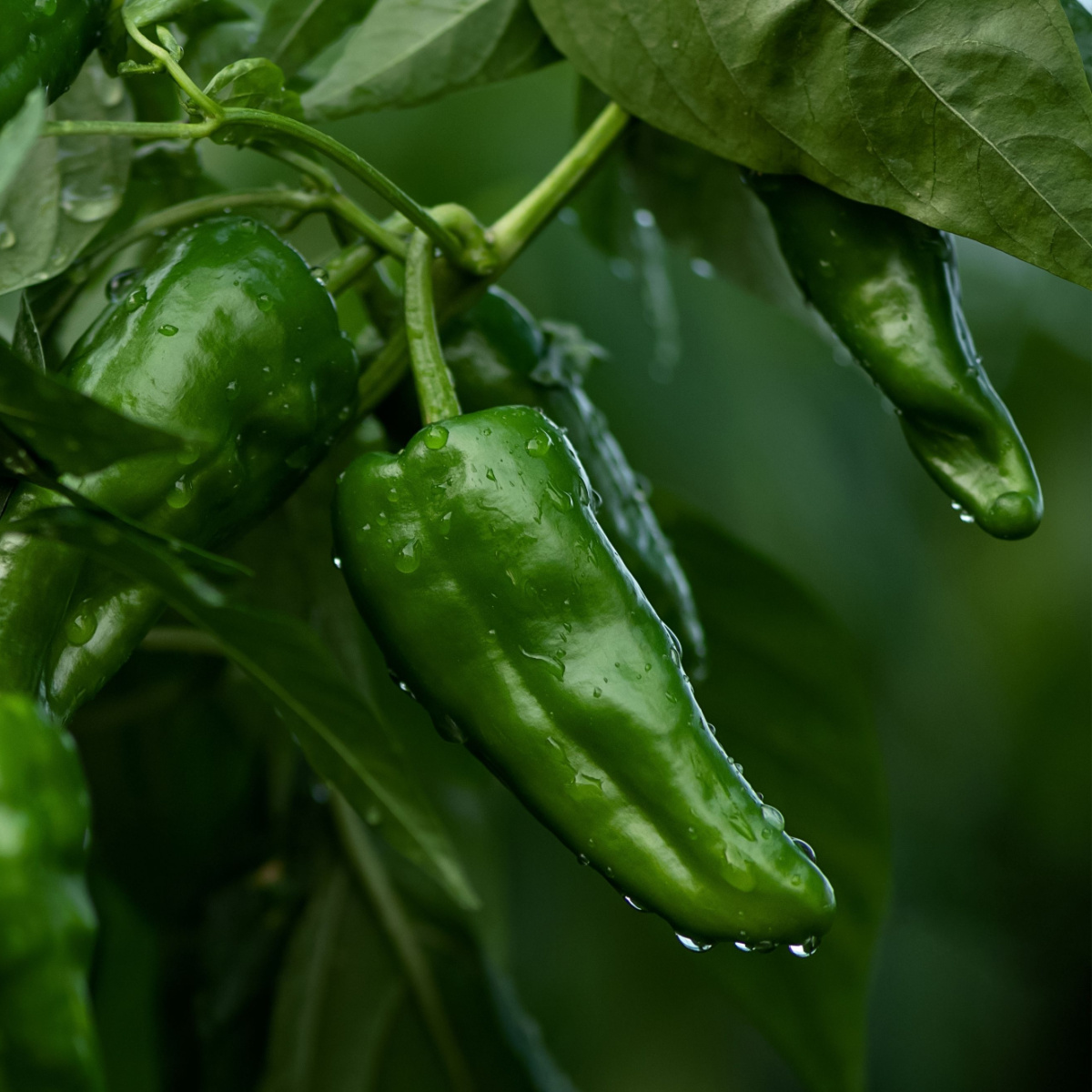Best Fertilizers for Peppers: Boost Growth and Taste Naturally
Organic Vs. Synthetic Fertilizers: Which Is Best for Supporting Healthy Pepper Plants?
In the realm of nurturing healthy and balanced pepper plants, the selection between artificial and organic fertilizers stands as an essential decision with significant effects. While both options objective to provide necessary nutrients to sustain plant development, the nuances of their influence on the soil, plant health, and the setting stimulate a debate that mirrors throughout the gardening area. Recognizing the distinctive advantages and prospective mistakes of each fertilizer type is essential for pepper farmers seeking to optimize their returns while maintaining a sustainable and eco-conscious approach.
Advantages of Organic Fertilizers
Organic fertilizers supply a lasting and environmentally-friendly approach to beneficial pepper plants, supplying essential nutrients without the usage of artificial chemicals. These all-natural fertilizers are acquired from natural sources such as garden compost, manure, bone dish, and algae, advertising dirt wellness and biodiversity. Unlike artificial fertilizers, organic alternatives release nutrients gradually, ensuring a well balanced and steady supply for pepper plants to grow.
One substantial advantage of organic plant foods is their capability to improve dirt framework and water retention. By improving dirt wellness, natural fertilizers advertise advantageous microbial task, which assists in nutrient uptake by pepper plants. In addition, natural plant foods decrease the risk of chemical run-off, shielding water sources from air pollution and safeguarding the atmosphere.
Additionally, natural fertilizers add to lasting dirt fertility by advertising the development of advantageous soil microorganisms. These microorganisms aid break down raw material, launching nutrients in a form that is conveniently available to pepper plants. best fertilizers for peppers. By fostering a healthy and balanced soil community, organic plant foods sustain lasting pepper farming methods that benefit both plants and the atmosphere
Disadvantages of Artificial Plant Foods
Artificial plant foods, in contrast to their natural counterparts, posture numerous drawbacks when used to nourish pepper plants, influencing both plant health and environmental sustainability. One significant disadvantage of synthetic plant foods is their tendency to leach nutrients from the dirt swiftly.
Moreover, the overuse of synthetic plant foods can contribute to water pollution. Excess plant foods not taken in by plants can remove right into water bodies, resulting in eutrophication, where algae blooms diminish oxygen degrees in the water, hurting aquatic life. Synthetic plant foods are usually obtained from non-renewable resources, such as fossil fuels, adding to carbon emissions and environmental degradation during their production.
Nutrient Absorption Comparison
When contrasting organic and artificial plant foods in terms of nutrient absorption, natural plant foods have the advantage of supplying a much more balanced explanation and slow-release source of nutrients. Organic plant foods have a variety of macro and micronutrients that are not just advantageous for the plants but likewise advertise healthy and balanced soil microbial activity, which helps in nutrient uptake.
Additionally, natural plant foods improve dirt structure and water retention capacity, permitting pepper plants to accessibility nutrients extra successfully. This better dirt quality promotes origin development, allowing better nutrient absorption. Synthetic fertilizers, although originally increasing plant development as a result of their high nutrient focus, might prevent lasting nutrient absorption by derogatory soil wellness gradually.
Ecological Influence Factors To Consider

On the various other hand, artificial fertilizers, although often more focused and immediately available to plants, can have harmful results on the setting if not used correctly (best fertilizers for peppers). Their production calls for high energy inputs, causing greenhouse gas discharges and contributing to climate adjustment. Moreover, the runoff of excess artificial plant foods can contaminate water sources, causing eutrophication and damaging marine communities.
Best Fertilizer Practices for Peppers
To achieve this, it is crucial to comply with finest fertilizer methods tailored to the certain requirements of pepper plants. One important technique is to perform a dirt examination before applying any type of fertilizers.
One more important practice is to fertilize pepper plants at the correct time. Normally, peppers profit from obtaining plant food at planting and afterwards once again when they start to flower. Over-fertilizing can result in nutrition read this article imbalances and hurt the plants, so it is important to follow recommended application rates.
Furthermore, choosing a balanced plant food with an NPK ratio that fits pepper plants' needs is basic. Organic plant check these guys out foods, such as garden compost or manure, can be excellent selections as they launch nutrients gradually and improve dirt framework in time. Nonetheless, artificial plant foods can provide a quick nutrient boost when needed. Inevitably, integrating artificial and natural fertilizers carefully can help nurture healthy and balanced pepper plants while minimizing ecological effect.
Final Thought

Organic fertilizers offer a lasting and environmentally-friendly approach to beneficial pepper plants, providing necessary nutrients without the use of artificial chemicals. Unlike artificial plant foods, natural options launch nutrients slowly, guaranteeing a stable and balanced supply for pepper plants to grow.
Artificial fertilizers, in comparison to their organic equivalents, pose numerous negative aspects when used to nurture pepper plants, impacting both plant health and wellness and ecological sustainability. When contrasting organic and artificial plant foods in terms of nutrient absorption, organic fertilizers have the advantage of giving a much more balanced and slow-release resource of nutrients.Furthermore, natural fertilizers enhance soil structure and water retention capability, permitting pepper plants to access nutrients more effectively.